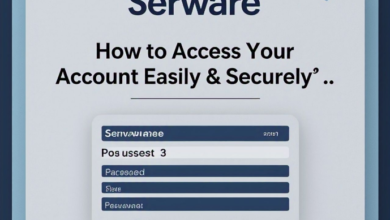Appraisersforum homeowner unable to proven solar is permitted

Imagine investing in solar panels to make your home more eco-friendly, only to find out that your efforts might actually lower your property value. Frustrating, right? That’s exactly the dilemma many homeowners face when they discover their solar panels aren’t properly permitted. In this article, we’ll dive into the world of appraisers, permits, and what happens when you can’t prove your solar panels are allowed. Let’s explore why this is such a common issue and what steps you can take to fix it.
Understanding Solar Panel Permits
What is a Solar Permit?
A solar permit is an official document issued by local government authorities that allows the installation of solar panels on your property. These permits ensure that your solar system complies with local building codes, zoning laws, and safety regulations.
Why Are Permits Important for Homeowners?
Permits are crucial because they protect homeowners by ensuring that the installation is safe, reliable, and meets all legal standards. Without proper permits, you could face fines, legal challenges, and a reduction in your property’s value.
The Role of an Appraiser
How Appraisers Assess Property Value
Appraisers are professionals who evaluate the market value of a property. They consider several factors, including location, size, condition, and features like solar panels. However, if those solar panels aren’t permitted, they might not add value—in fact, they could do the opposite.
The Impact of Solar Panels on Home Appraisals
Solar panels can significantly boost a home’s value, especially if they reduce energy costs. However, this only holds true when the installation complies with local regulations. Unpermitted solar panels can raise red flags for appraisers, often leading to a lower valuation.
Common Issues Faced by Homeowners
Lack of Documentation
One of the most common issues homeowners face is missing or incomplete documentation for their solar installations. This can include missing permits, lack of proof of inspection, or incomplete installation records.
Unpermitted Installations
In some cases, solar panels are installed without any permits at all, either due to oversight or to cut costs. This becomes a significant problem when trying to prove the legality of the installation during an appraisal or sale.
Why Proof of Permits is Crucial
Compliance with Local Laws
Without the correct permits, your solar installation is considered illegal. This non-compliance can result in fines, forced removal of the panels, or expensive retrofitting to meet current standards.
Avoiding Fines and Penalties
Homeowners caught with unpermitted solar panels could face substantial fines. In some areas, authorities may even require the removal of the panels until proper permits are obtained.
How Missing Permits Affect Home Value
Reduced Appraisal Value
Unpermitted solar panels can lower your home’s value because they introduce uncertainty and potential legal headaches for future buyers. Appraisers are less likely to assign value to unverified installations.
Challenges in Selling the Property
Selling a home with unpermitted solar panels can be a nightmare. Potential buyers might be wary of taking on legal and financial risks, making your property less attractive on the market.
What to Do if You Can’t Prove Your Solar Panels are Permitted
Steps to Take When Permits Are Missing
If you can’t find proof of your solar panel permits, your first step is to contact your local building authority. They may have records of the installation, or they can guide you through the process of obtaining missing documentation.
Engaging with Local Authorities
Be proactive. Reach out to your local building department to discuss the situation. They can provide information on what is required to bring your installation up to code and legalize it.
Getting an After-the-Fact Permit
What is an After-the-Fact Permit?
An after-the-fact permit is issued when you apply for a permit after the installation has already been completed. This process often involves an inspection to ensure the system meets current standards.
How to Obtain One
Contact your local permitting office and explain your situation. Be prepared for an inspection and potential modifications to your system to meet code requirements. While this can be costly, it’s essential for protecting your home’s value.
Communicating with Appraisers
Tips on Presenting Your Case
When dealing with appraisers, transparency is key. Provide as much documentation as possible, including any available permits, inspection reports, and proof of compliance with local codes.
Documentation to Provide
Ensure you have all paperwork in order, including manufacturer specifications, installation warranties, and any communication with your local permitting office. This helps build a solid case that your solar panels are a legitimate asset.
The Legal Implications of Unpermitted Solar Panels
Potential Legal Consequences
Operating with unpermitted solar panels can lead to legal disputes, especially when selling your property. Buyers may demand that the panels be permitted before closing, delaying the sale or reducing your profit.
How to Protect Yourself Legally
Consult with a real estate attorney familiar with local building codes and solar regulations. They can guide you on how to address any legal issues and ensure your property is compliant.
Navigating Appraisers Forums for Advice
How Forums Can Help Homeowners
Online forums like Appraisers Forum are invaluable resources for homeowners dealing with solar panel issues. You can find advice from professionals, share your experiences, and learn from others who have faced similar challenges.
Sharing Experiences and Solutions
Forums provide a platform to connect with others who have successfully navigated the maze of unpermitted solar panels. This peer-to-peer advice can be invaluable in finding a practical solution.
The Importance of Proper Installation and Documentation
Ensuring Professional Installation
Always hire licensed professionals for your solar installation. They are familiar with local regulations and will ensure that all necessary permits are obtained.
Keeping All Relevant Paperwork
Documentation is everything. Keep a dedicated file for all solar-related paperwork, including permits, inspection records, and installation details. This file will be crucial during an appraisal.
How to Prepare for an Appraisal with Solar Panels
Checklist for Homeowners
- Ensure all permits are up to date.
- Provide appraisers with installation details.
- Highlight the energy savings and benefits of your solar system.
Common Mistakes to Avoid
Avoid attempting to hide unpermitted panels or providing incomplete information. Honesty and transparency will go a long way in securing a fair appraisal.
Future-Proofing Your Solar Investment
Ensuring Compliance for Future Sales
To avoid future headaches, always verify that your solar installation is compliant with current regulations. This will save time, money, and stress when you decide to sell.
Upgrading Permits if Necessary
Building codes and regulations change over time. It’s wise to periodically review your permits and make any necessary updates to ensure continued compliance.
Conclusion
Dealing with unpermitted solar panels can be daunting, but it’s not insurmountable. By understanding the importance of permits, communicating effectively with appraisers, and taking proactive steps to legalize your installation, you can protect your investment and maintain your property’s value. Remember, when it comes to solar panels, documentation isn’t just paperwork—it’s your best ally in the appraisal process.
FAQs
- Can unpermitted solar panels be legalized?
Yes, you can often legalize unpermitted solar panels by applying for an after-the-fact permit and ensuring the system complies with current regulations. - How do solar permits affect home appraisals?
Solar permits are essential for appraisers to consider the panels as a value-adding feature. Without permits, the panels may be viewed as a liability rather than an asset. - What happens if I can’t find my solar permits?
Contact your local building authority to check for records. If none exist, you may need to apply for an after-the-fact permit or have your system inspected. - Can I sell my home with unpermitted solar panels?
You can, but it might be challenging. Buyers may be hesitant, and appraisers will likely value the home lower due to the legal and financial risks involved. - How can appraisers forums help with solar permit issues?
Forums like Appraisers Forum offer a wealth of advice, shared experiences, and potential solutions from homeowners and professionals facing similar challenges.




